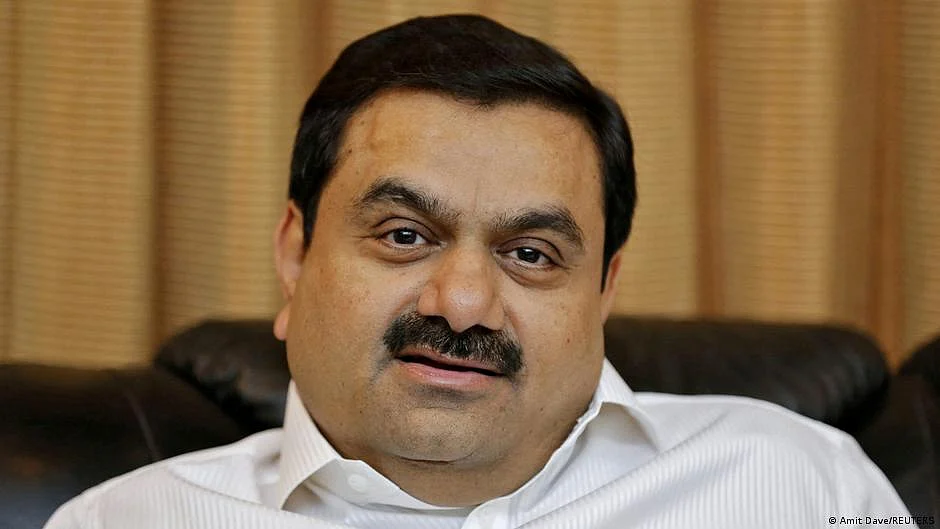Adani Group inflated coal import price between 2019 and 2021, says FT report
The imported coal supplied to power plants thus raised the cost of fuel and electricity generation, forcing Indian consumers and businesses to overpay for electricity

Customs reports in both Indonesia and India examined by the Financial Times (FT) relating to 30 coal shipments between 2019 and 2021 show that import prices or the value of coal declared in India were much higher than export declarations made in Indonesia.
The imported coal supplied to power plants at inflated costs thus raised fuel costs and the cost of electricity generation, forcing Indian consumers and businesses to "overpay" for their electricity, an FT report published on Thursday suggests.
"In January 2019, DL Acacia, a 229 m-long bulk carrier with a South Korean owner and Panamanian flag, departed the Indonesian port of Kaliorang in East Kalimantan carrying 74,820 tonnes of thermal coal destined for the fires of an Indian power station,” the report reads in part.
“During the voyage, something extraordinary occurred: the value of its cargo doubled. In export records the price was $1.9 mn, plus $42,000 for shipping and insurance. On arrival at India’s largest commercial port, Mundra in Gujarat run by Adani, the declared import value was $4.3 mn."
In one instance, the value of a shipment of coal was shown as Rs 139 million ($1.7 million) when the ship left an Indonesian port. By the time it reached Mundra, the price had miraculously gone up to Rs 215 million ($2.6 million).
The FT investigation also shows that the Adani Group made use of little-known trading houses based in Taipei, Dubai and Singapore, who raised the invoices at inflated rates. The trading firms, Hi Lingos in Taipei, Taurus Commodities General Trading in Dubai, and Pan Asian Tradelink in Singapore, worked as middlemen.
The Taipei based firm of Chang Chung Ling, who earlier reports by FT suggested worked as a front for the group, seemed to operate from a residential apartment house. The neighbours claimed the apartment led to an imposing four-storied building next door, used by Chang Chung Ling as a residence. The firm in Singapore, given the high volume and high value traded, functioned from an "unglamorous" address, the report adds.
The report quotes media inputs from Gujarat to point out that the Gujarat power utility had overpaid Adani Group for the electricity supplied. In place of Rs 13,806 crore that the utility paid over a period, the price as per available records should have been Rs 9,902 crore, the report adds.
In a statement on 9 October, the Adani Group had accused a "foreign publication" of trying to tarnish its reputation. Clearly alerted by pre-publication queries, the group questioned the motivation of "foreign" hands in seeking to financially destablise the Adani Group.
It had also dropped enough hints in the statement that the impending report in the foreign publication had to do with price manipulation and over-invoicing by the group. Claiming that concerns raised by the Directorate of Revenue Intelligence in 2016 had been quashed by the tribunal and dismissed by the Supreme Court, it added that regulatory bodies in India are transparent and robust. “Hence the question of over invoicing or price manipulation does not arise," the statement asserted.
The statement also said, “Having failed earlier, a foreign publication is making another effort to financially destabilise the Adani Group by raking up an old, baseless allegation of over-invoicing of coal imports…while the proposed story by the publication is based on DRI's General Alert Circular dated March 30, 2016, which mentioned as many as 40 importers, the publication has singled out the Adani group.”
"This list not only included some of India's major private power generators like Reliance Infra, JSW Steel and Essar but also state power generating companies of Karnataka, Gujarat, Haryana, Tamil Nadu, etc and NTPC and MSTC," the statement added.
The DRI in its circular had alleged that Adani Group companies over-valued equipment and machinery imported from a United Arab Emirates-based entity. It reportedly suspected that some of the funds used in those transactions may have found their way back into the group's listed companies.
The Customs, Excise & Services Tax Appellate Tribunal (CESTAT) had, however, quashed the case. DRI went in for an appeal, but the Supreme Court this year dismissed its petition as withdrawn on 24 January 2023 with the observation that "we appreciate the stand taken by the government in not entering into futile litigation".
The Adani Group said the foreign publication is "recycling" and "selectively misrepresenting" publicly available facts and information with "a deliberate and mischievous suppression of judicial decisions to arrive at a predetermined conclusion".
"It shows scant respect for India's regulatory and judicial processes and authorities. It also deliberately ignores the fact that coal procurement in India on long-term supply basis is done through an open, transparent, global bidding process, thereby eliminating any possibility of price manipulation," it added.
Follow us on: Facebook, Twitter, Google News, Instagram
Join our official telegram channel (@nationalherald) and stay updated with the latest headlines